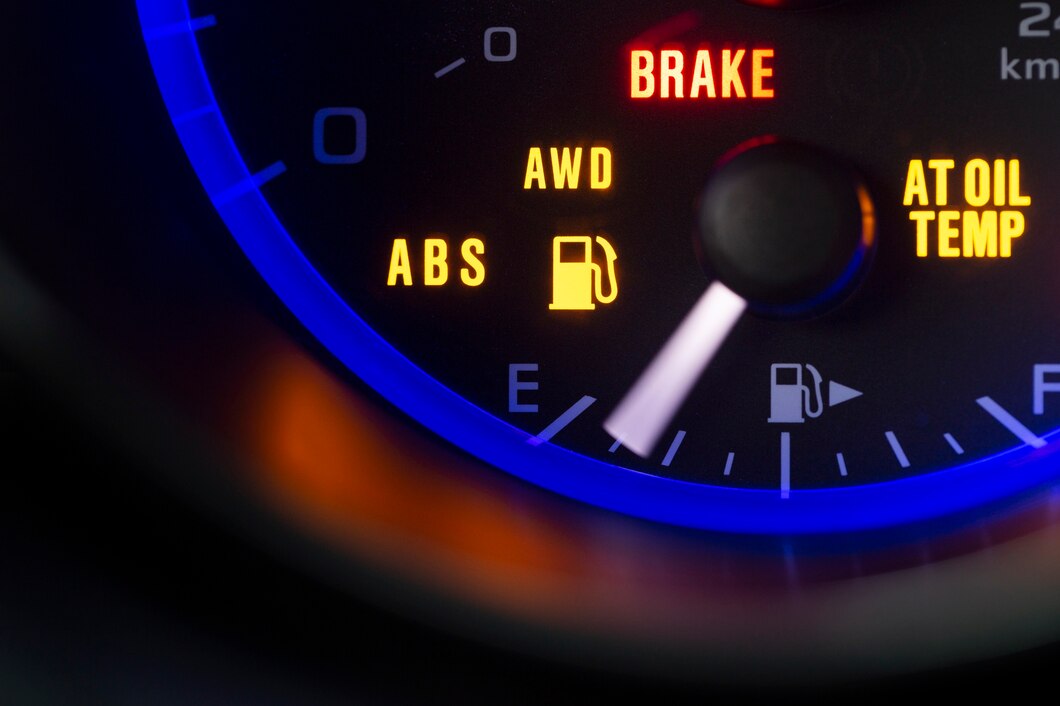Your car’s Anti-lock Braking System (ABS) is a critical safety feature designed to prevent wheels from locking up during braking, thereby maintaining steering control in emergency braking situations. Like any other system in your vehicle, the ABS can experience issues over time, compromising its effectiveness. Recognizing the early signs that your car’s ABS system needs attention can help prevent accidents and ensure your safety on the road. Here are some key indicators to watch for:
1. ABS Warning Light
One of the most obvious signs that your ABS system needs attention is the illumination of the ABS warning light on your dashboard. This light can indicate various issues, such as a malfunctioning ABS sensor, a problem with the ABS pump, or low brake fluid levels. If the ABS warning light stays on after you start your car or illuminates while driving, it’s essential to have the system inspected as soon as possible.
2. Pulsating Brake Pedal
A pulsating or vibrating brake pedal during normal braking can indicate a problem with the ABS system. When the ABS engages to prevent wheel lock-up, you may feel a pulsation or vibration in the brake pedal. However, if you experience this sensation during routine braking on dry pavement, it could signal an issue with the ABS sensors or control module.
3. Unusual Noises During Braking
Strange noises, such as grinding, clicking, or buzzing sounds, when you apply the brakes can be a sign of ABS system trouble. These noises often indicate problems with the ABS pump or hydraulic unit. Ignoring these noises can lead to further damage to the ABS components and compromise your vehicle’s braking performance.
4. Brake Pedal Feels Soft or Spongy
A soft or spongy brake pedal can indicate air or moisture in the brake lines, affecting the proper operation of the ABS system. When air or moisture enters the system, it can cause brake fluid to become compressible, leading to a loss of braking power and responsiveness. Bleeding the brake system and addressing any leaks can help restore proper ABS function.
5. ABS System Activates Unnecessarily
If the ABS system engages during normal driving conditions, such as gentle braking on dry pavement, it could indicate a malfunction. This can be caused by faulty sensors, wiring issues, or a malfunctioning ABS control module. When the ABS activates unnecessarily, it can affect your ability to maintain control of the vehicle and increase stopping distances.
6. ABS System Fails to Engage During Emergency Braking
Conversely, if the ABS system fails to engage during emergency braking situations, it could pose a significant safety risk. The ABS is designed to prevent wheel lock-up and skidding, allowing you to maintain steering control while stopping quickly. If you notice that the wheels lock up during hard braking, have the ABS system inspected immediately.
7. Uneven Braking or Pulling to One Side
If your car pulls to one side or experiences uneven braking during ABS activation, it could indicate a problem with the system. This issue can be caused by uneven brake pad wear, a sticking caliper, or a malfunctioning ABS component. Addressing these issues promptly is crucial for maintaining optimal braking performance and vehicle stability.
Preventive Measures and Maintenance
To keep your ABS system in top condition and prevent potential issues, follow these preventive measures:
- Regular Brake Inspections: Have your brakes inspected regularly by a qualified mechanic to detect any issues early.
- Keep Brake Fluid Levels in Check: Check your brake fluid regularly and top it off as needed. Low brake fluid levels can affect ABS system performance.
- Address Warning Signs Promptly: If you notice any of the early signs mentioned above, don’t ignore them. Prompt attention can prevent further damage and ensure your safety on the road.
- Follow Maintenance Schedule: Adhere to your vehicle manufacturer’s recommended maintenance schedule, which often includes inspections and servicing of the ABS system.
In conclusion, recognizing the early signs that your car’s ABS system needs attention is crucial for maintaining safety and preventing accidents on the road. By staying vigilant and addressing any issues promptly, you can ensure that your ABS system operates effectively when you need it most. If you experience any of these signs, schedule a diagnostic inspection with a qualified mechanic to identify and resolve the problem.











